Baseus Smart Car Charger 2xQC 36W BSC-C15K
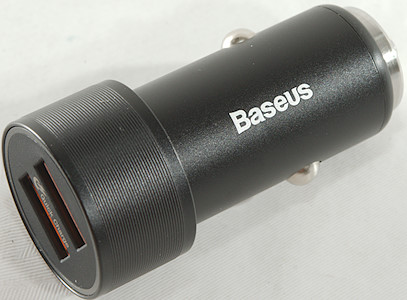
Official specifications:
-
Brand: Baseus
-
Color: Black, Red
-
USB Port: 2
-
Material: Aluminum Alloy
-
Total Power: 36W
-
Input: DC 12-24V
-
Output: DC 5V/2.4A, 9V/2A, 12V/1.5A
-
Certification: RoHS, CCC, CE, FCC, QC 3.0
I got it from Banggood
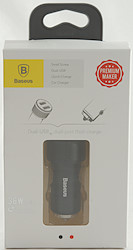

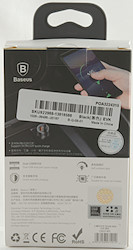

I got it in a small cardboard box with both Chinese and English specifications on it.
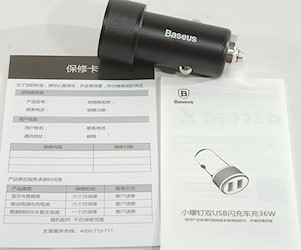
The box contained the charger, instruction sheet and a warranty chart with text in both English and Chinese.
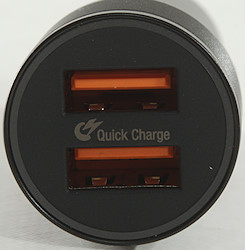
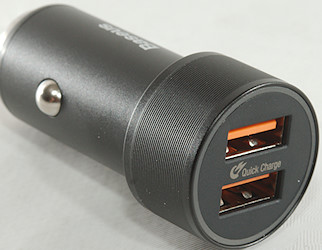
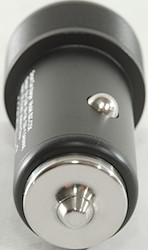
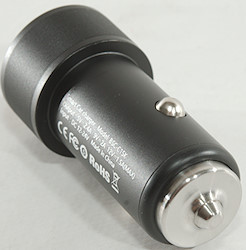
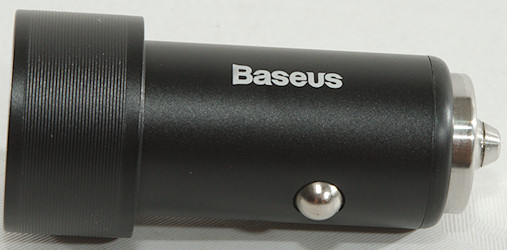
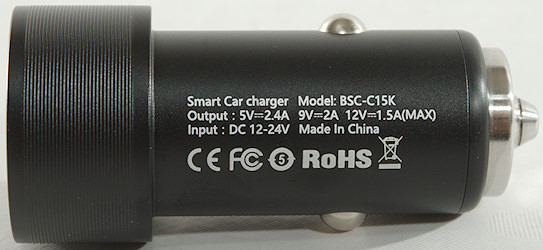
Measurements
-
Outputs supports Apple 2.4A, Samsung, DCP, QC3, Samsung-AFC, Huawei-FCP, Huawei-SCP
-
Minimum QC3 voltage is 3.5V
-
Current consumption when idle is 15mA
-
There is illuminated ring around the usb connectors.
-
Weight: 31.0g
-
Length: 58mm
-
Diameter: 26mm
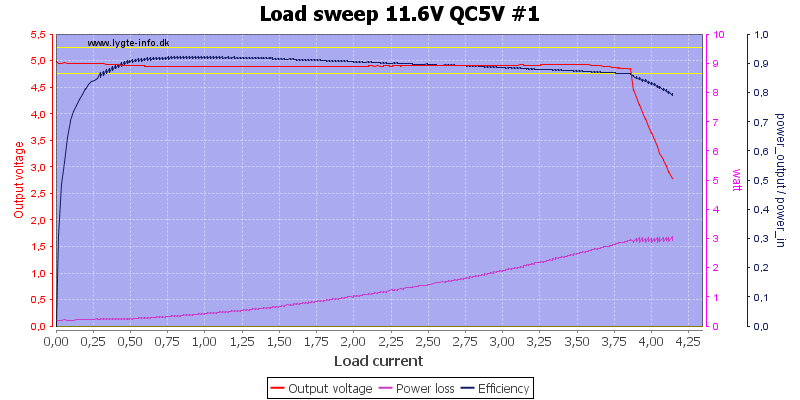
At 5V the charger can deliver 4A, this is a bit much for a 2.4A charger.
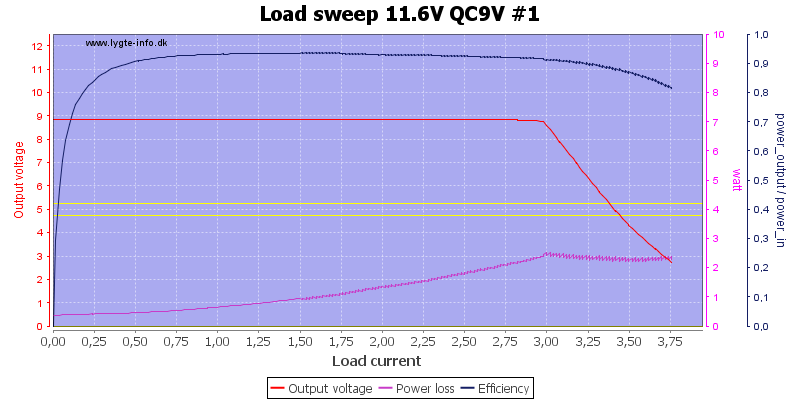
At 9V the charger can deliver 3A before the output voltage drops.
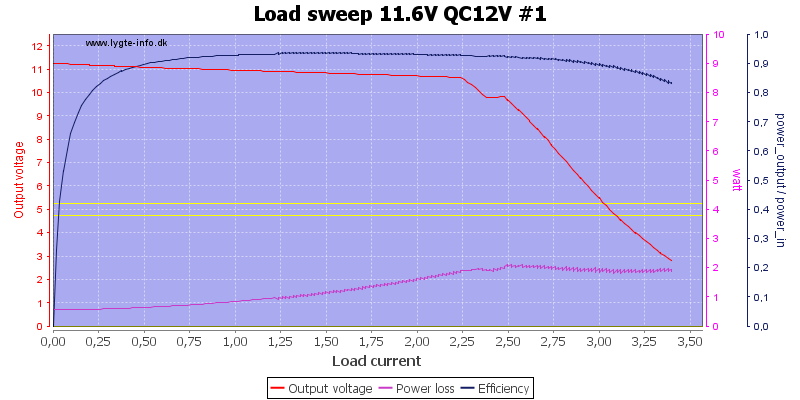
At 12V it is “only” 2.2A, the rating is 1.5A. This curve is with 11.6V input and the output voltage is around 11V, this is acceptable.
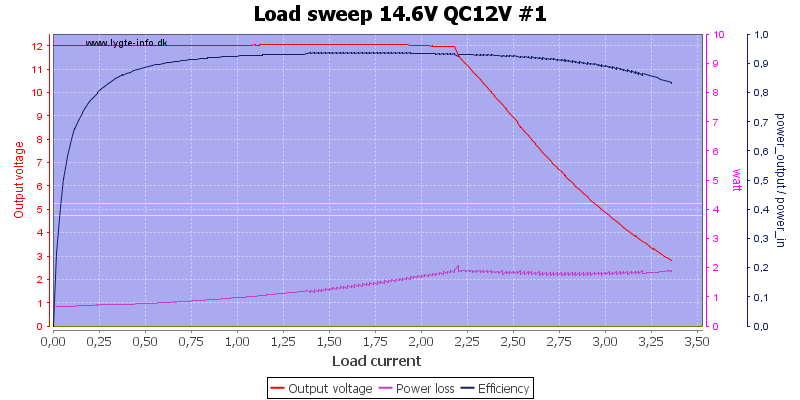
With 14V input the voltage is maintained nicely at 12V
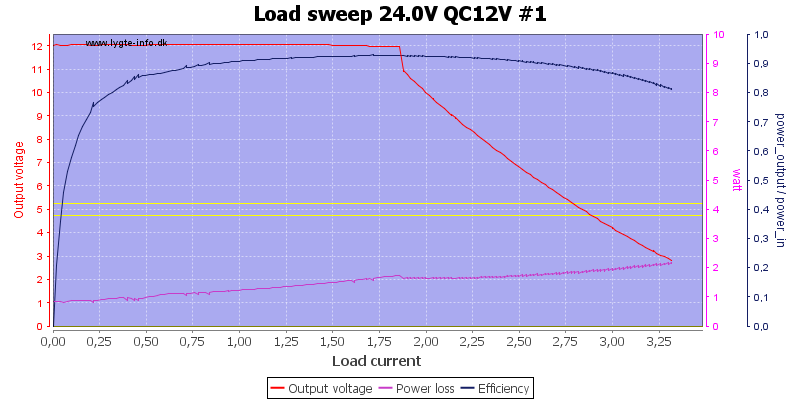
With 24V input the maximum current drops a bit, but is still above rated current.
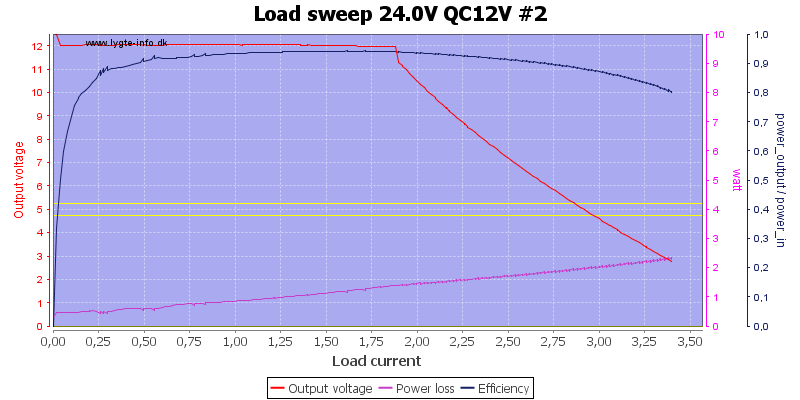
The second output looks similar.
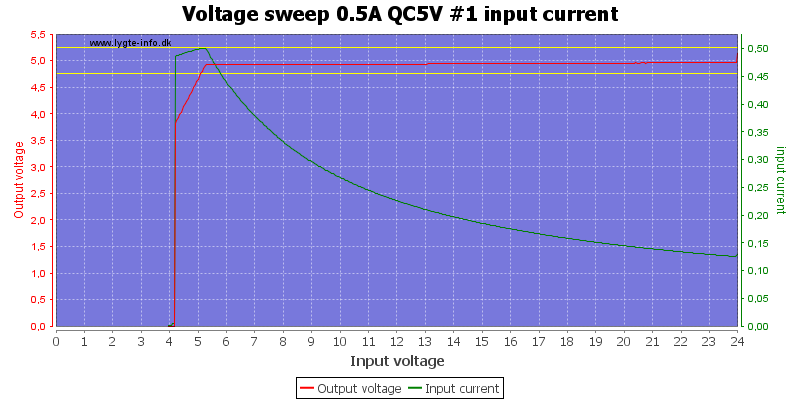
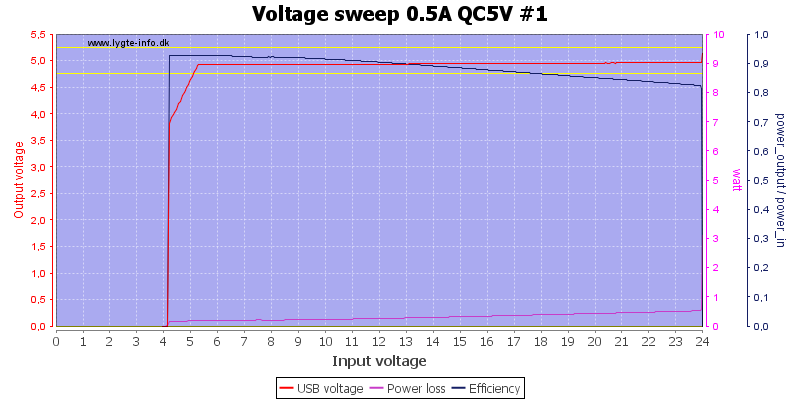
With 0.5A output current the charger can maintain 5V output down to nearly 5V input.
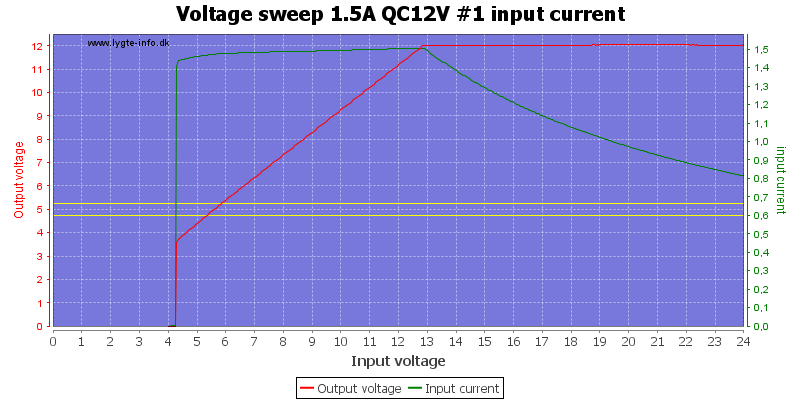
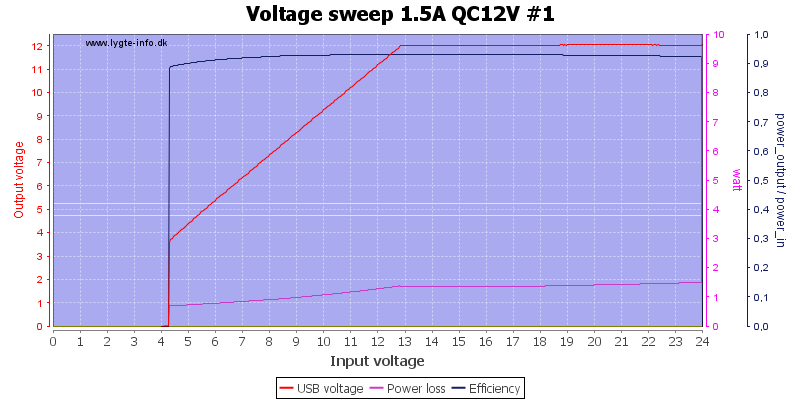
At full 12V current the 12V output can be maintained down to 12.5V input, this is impressive.
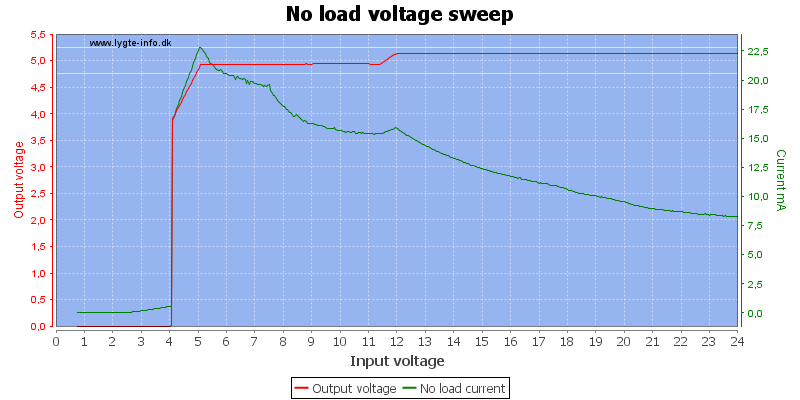
The current consumption varies with input voltage and is about 15mA at 12V and 8mA at 24V
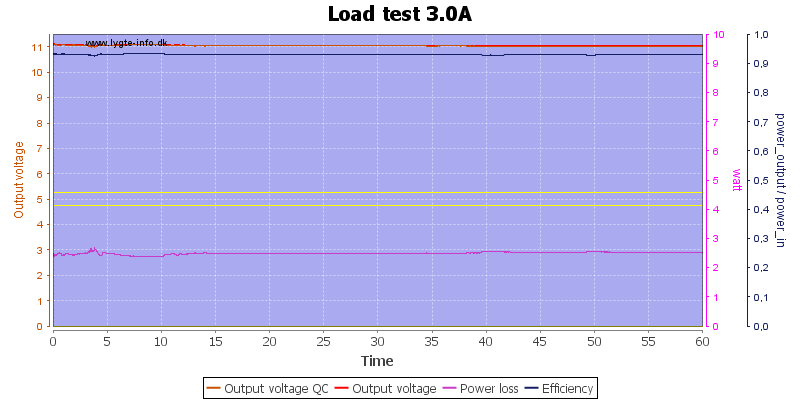
For load test I uses 12V 1.5A on both outputs.
The temperature photos below are taken between 30 minutes and 60 minutes into the one hour test.
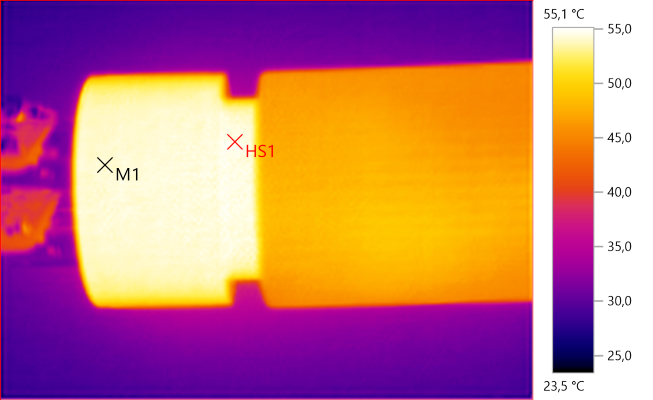
M1: 54.2°C, HS1: 55.1°C
With a aluminium body the temperature is fairly uniform on the outside and the good efficiency also means it is low compared to the power it is handling.
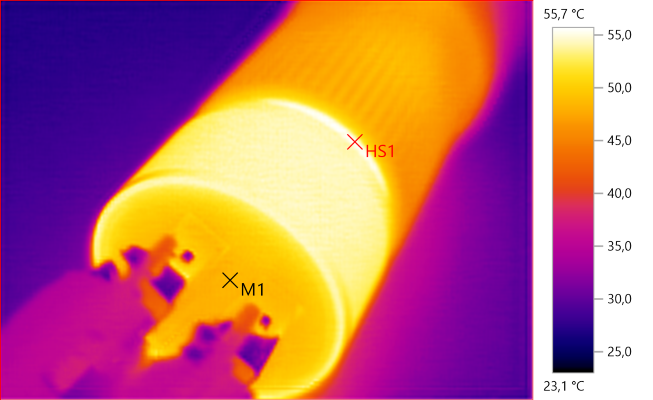
M1: 48.5°C, HS1: 55.7°C
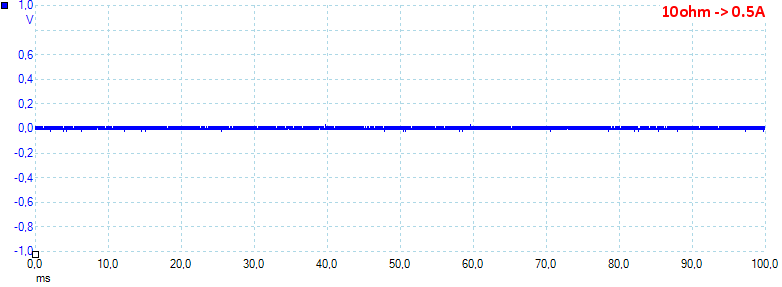
Noise at 0.5A output is 40mV rms and 232mVpp
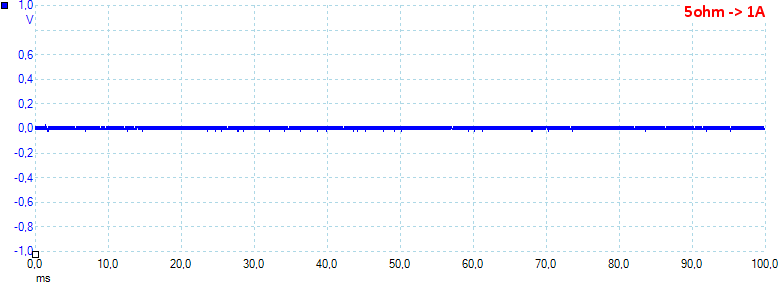
Noise at 1A output is 13mV rms and 118mVpp

Noise at 2.5A output is 11mV rms and 239mVpp
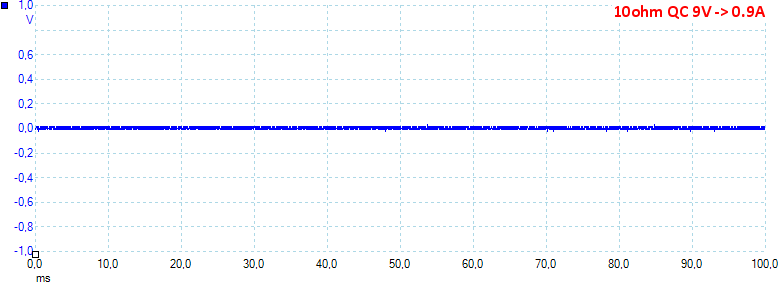
Noise at 0.9A on the QC output is 12mV rms and 120mVpp
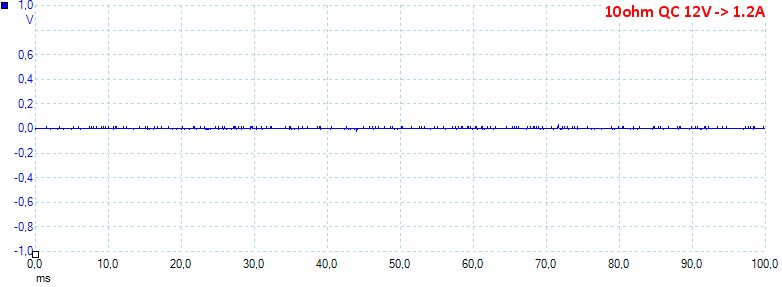
Noise at 1.2A on the QC output is 8mV rms and 83mVpp, all low noise values.
Tear down
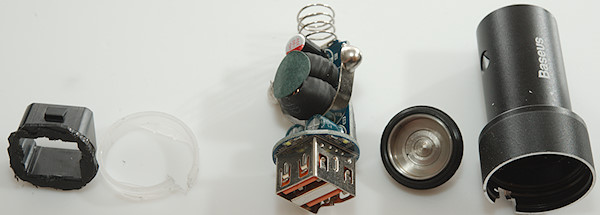
It was easy enough to screw the back off, but the I could not get the front off, in the end I did some cutting, but not before having damaged the usb connector.
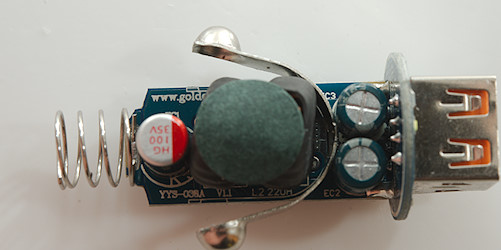
On this side of the circuit board is input and output capacitors and two inductors.
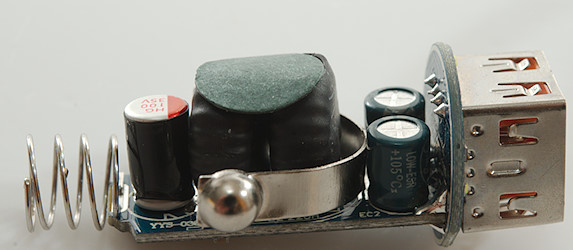
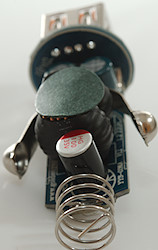
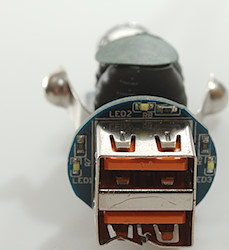
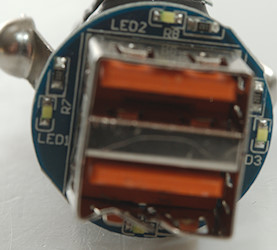
The front has 4 leds to illuminate the ring.
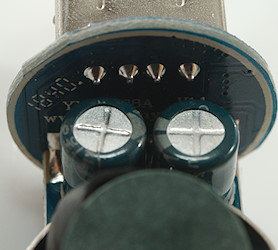
There is nothing on the back.
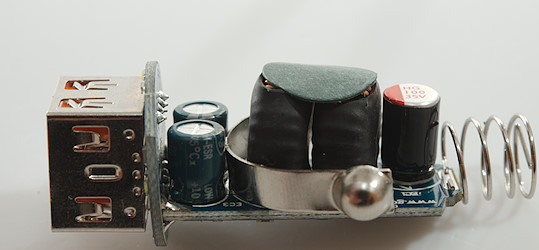
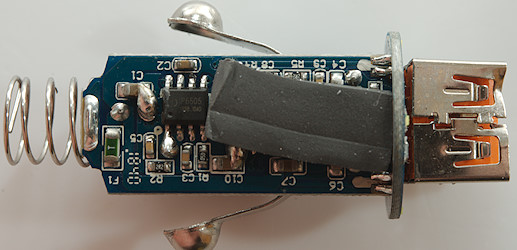
There is some heat transfer material on top of the chips.
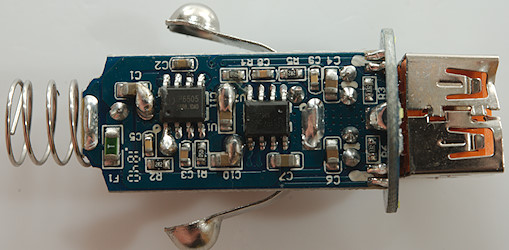
At the 12V input spring is a fuse (F1) and the two QC switcher and controller chips (U1 & U2: I6505), these chips do everything.
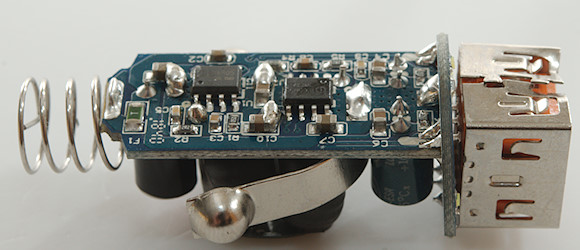
Conclusion
It is a very good universal car charger, it can handle most fast charge protocols, it has good efficiency and in this charger it also has low output noise. With the aluminium construction it is solid and the best possible heat transfer. The only detail I am missing is a slightly more strict overload protection.
Notes
The charger was supplied by banggood.com for review.
Read more about how I test USB power supplies/charger